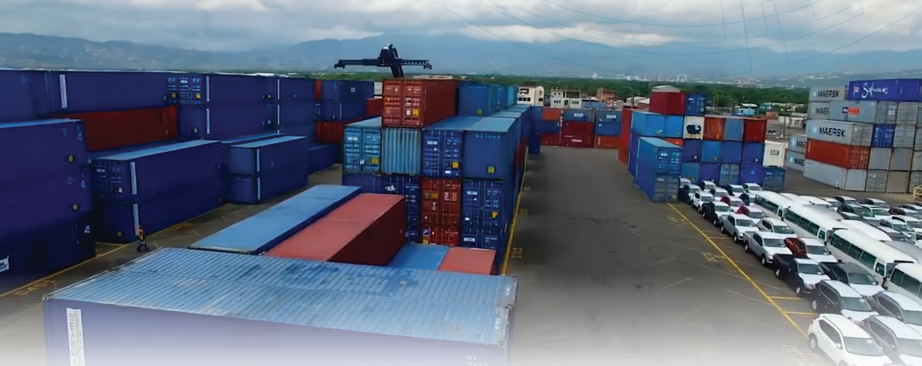Improving Port Congestion with Port Management Software
As global trade volumes continue to rise, the pressure on ports to handle higher quantities of cargo intensifies. Port managers have the delicate task of juggling limited port resources, labour shortages, equipment malfunctions, and customs clearance delays, all factors which can contribute to congestion on the terminal. If this balancing act is not done right the result is shipment delays, increased operational costs and lower customer satisfaction. However, having the right port management software in place can provide major relief in reducing congestion, enhancing port operations, and benefiting the global supply chain.

How Port Management Software Mitigates Congestion
Port management software addresses congestion through advanced features and tools that streamline port operations. Some keyways this technology helps reduce congestion include:
Optimizing Vessel Scheduling:
A primary contributor to congestion is the inefficient scheduling of vessels. Port management software integrates vessel scheduling systems, allowing port authorities to coordinate vessel arrival and departure times more effectively. By using real-time data, the software can adjust schedules, minimize delays, and ensure smooth docking procedures; real-time tracking systems improve cargo handling efficiency by 15%. Automated scheduling further reduces human error and enhances communication, ensuring that high-priority shipments are processed promptly.
Cargo Tracking and Real-Time Monitoring:
Port management software leverages real-time data and IoT technology to track cargo as it moves through the port. By enabling stakeholders like customs authorities, shipping companies, and port operators to access up-to-date cargo information, the software ensures timely handling and identification of any delays. Real-time visibility allows port operators to reroute or reschedule cargo, avoiding bottlenecks and preventing unnecessary accumulation of containers in one area, which helps reduce congestion by up to 20%.
Historical Analytics for Capacity Management:
Analytical data provided by port management software offers insights into vessel arrivals, cargo volumes, and unloading times. By examining these trends, the software helps port authorities identify potential peak periods and optimize operations. This approach allows users to make informed decisions about adjusting vessel schedules and terminal activities to efficiently manage cargo surges, docking spaces, and labour resources.
Enhancing Communication and Collaboration:
Effective communication and collaboration among stakeholders in port operations are crucial to prevent congestion. Port management software can integrate seamlessly through EDI exchange with external systems like Port Community Systems or Customs Systems such as ASYCUDA. This integration enables faster, more efficient communication and ensures that all relevant stakeholders have access to real-time data, improving coordination and reducing the risk of delays and bottlenecks.
Broader Benefits for Port Operations and the Global Supply Chain
Reducing congestion through port management software yields several broader benefits that extend beyond immediate operational efficiency:
Increased Port Throughput:
By improving the flow of goods and reducing waiting times, port management software increases the overall throughput of a port. This enhanced capacity enables ports to handle more vessels and cargo, boosting their ability to support global supply chains and international trade.
Cost Savings:
Congestion leads to higher costs, such as delayed cargo handling, extended vessel waits times, and increased fuel consumption. By streamlining operations, port management software reduces these costs, leading to lower shipping rates and more competitive pricing for businesses and consumers.
Enhanced Customer Satisfaction:
With faster turnaround times and more efficient operations, port management software improves the predictability of shipping schedules. This reliability enhances customer satisfaction for businesses that depend on timely deliveries, improving the competitiveness of ports on a global scale.
Port congestion poses a significant challenge to global trade, but the integration of port management software offers an effective solution. By optimizing vessel scheduling, improving communication, and analyzing historical data, port management software alleviates congestion and enhances port efficiency. The benefits extend beyond operational improvements, leading to cost savings and greater customer satisfaction.
In today’s fast-paced trade environment, ports must embrace innovation to remain competitive. The ADVANTUM Port software is one such module that empowers ports to operate more efficiently, eliminate costly delays, and optimize logistics processes from end to end. Visit www.advantumpcs.comto learn more and schedule a demo!
Originally published in the Portside Caribbean Magazine May – August 2025
